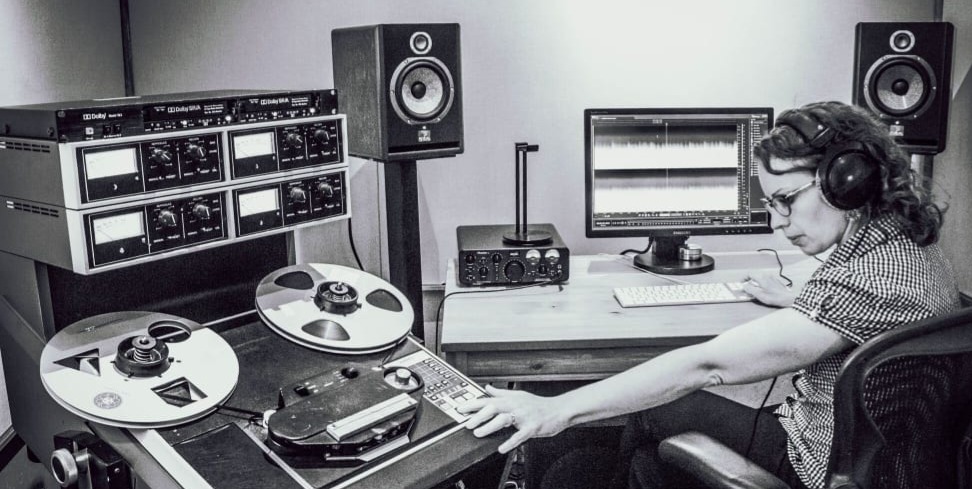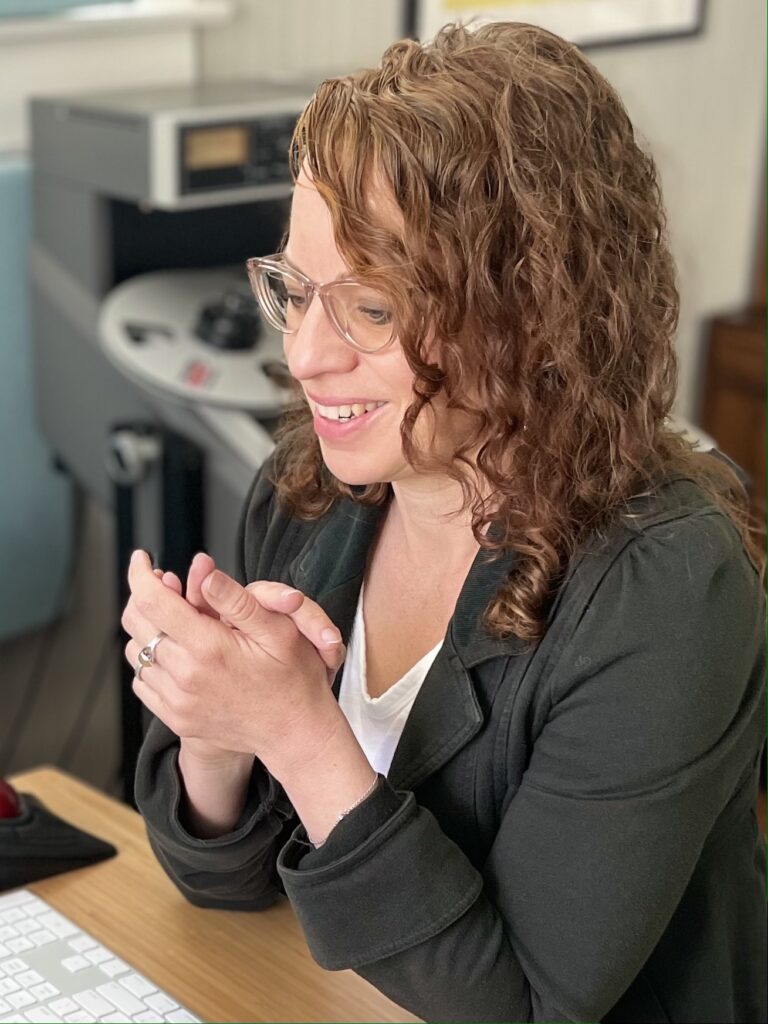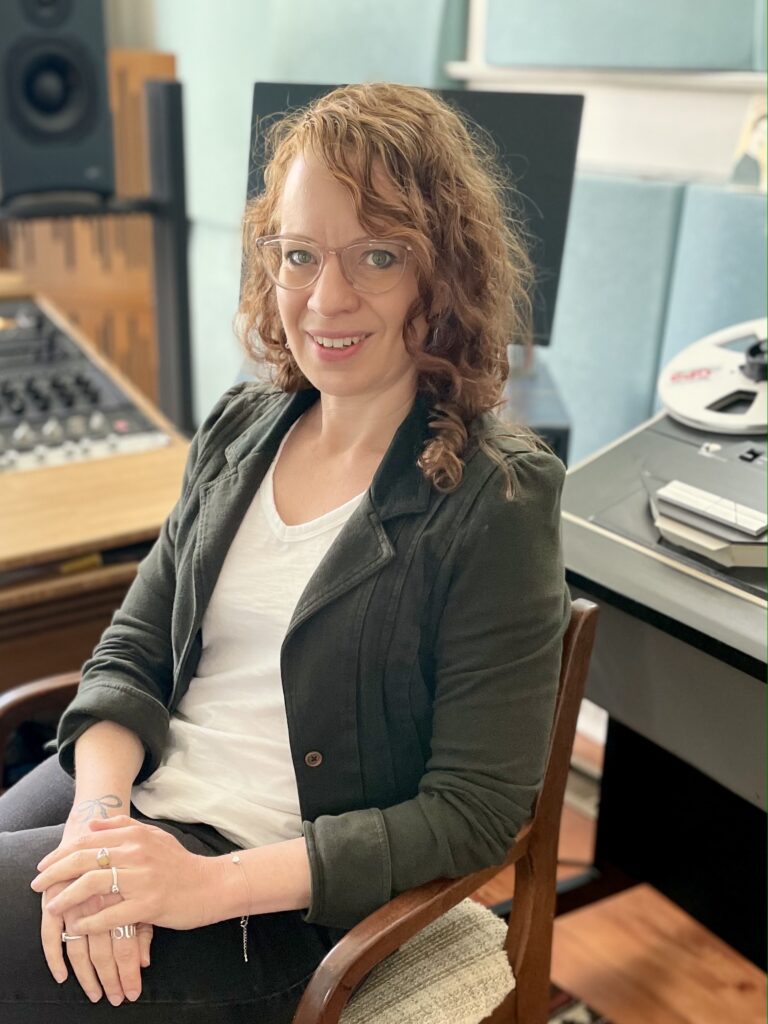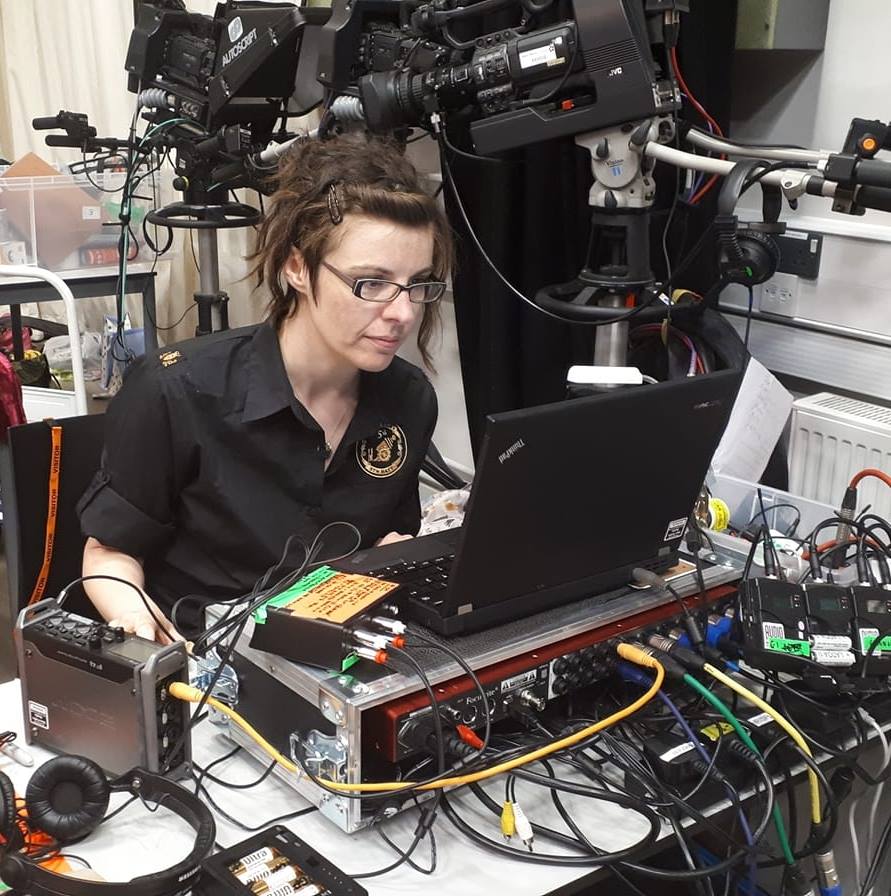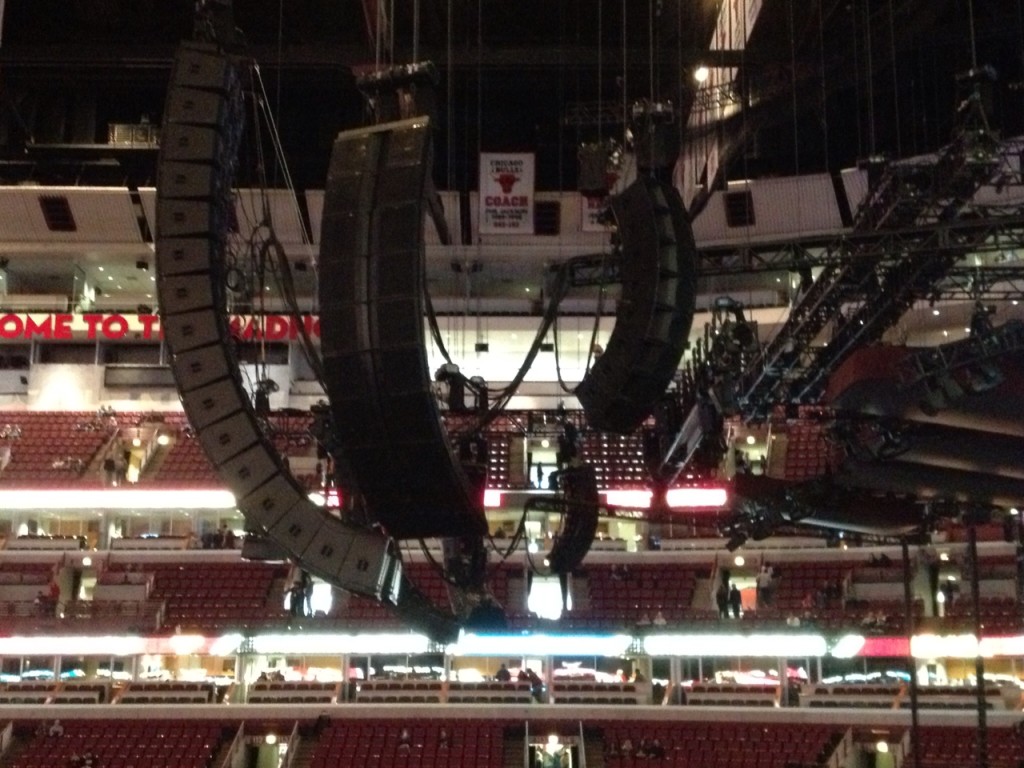For more than two decades, Jessica Thompson has dedicated her career to the art and science of sound. As a mastering, restoration, and preservation engineer and founder of Jessica Thompson Audio, she has spent over ten years helping artists, labels, and archives bring recordings to life with precision, empathy, and deep musical understanding.
Jessica’s path to audio began not on stage, but behind the scenes. Growing up surrounded by records, cassettes, and the radio, she was drawn to music’s atmosphere and texture more than performance. It wasn’t until she discovered college radio in the 1990s—an era she calls “a real heyday”—that she found her place in sound. Immersed in the creative freedom of programming and production, Jessica learned to splice tape, run boards, and blend genres into thoughtful sonic journeys.
That early passion led her to public radio at WGBH in Boston, where she found invaluable mentors—many of them women—who modeled what a career in audio could look like. Seeing women record, edit, and produce audio content was both inspiring and transformative, solidifying her commitment to pursue sound as a lifelong profession.
Jessica holds a bachelor’s degree in Anthropology from Wesleyan University, where she developed an appreciation for how culture, art, and technology intersect. Later, she earned a master’s degree in Media Studies from The New School, focusing on sound studies. Though her academic work helped her understand the philosophical and cultural side of sound, her true technical foundation came through hands-on experience—learning by doing, listening, and refining.
For Jessica, mastering is a craft that demands both patience and curiosity. “There’s no shortcut,” she says.
Career Start
How did you get your start? How did your early internships or jobs help build a foundation for where you are now? What did you learn interning or on your early gigs? Did you have a mentor or someone that really helped you?
My first internship at a mastering studio was a crash course in working in professional audio. The hours were punishingly long and the bar was sky high. I remember being taught the importance of every detail — from the precise, musical spacing between songs to spelling the artist’s name correctly. I did massive amounts of quality control listening, and there is no better way to train your ears than listening to hours and hours of music, closely, without distraction, every day.
In 2009, I landed at the Magic Shop in NYC, working with Steve Rosenthal who, to this day, is a friend and mentor. We worked on a lot of historical, archival recordings, everything from creating inventories to digitizing old tapes and discs to restoring and remastering the music, even field trips to basements and barns to assess collections. Steve is a brilliant producer and collaborator. He would give me mastering notes that truly made the project better, sometimes subtle and sometimes calling for a wildly different direction.
Since this is SoundGirls, I think it’s relevant to share this: I became pregnant with my first child while working at the Magic Shop, and not only did Steve not fire me, he graciously offered all the flexibility I needed, and then he gave me the crib his daughter had recently outgrown. I worked part-time after my son was born, and continued to devote myself to learning the craft and hitting my deliverables deadlines. I had a daughter 3 years later and kept up my part-time mastering schedule. Don’t get me wrong, I was not sleeping much, and there was a lot to juggle. But what a gift to be able to devote yourself to your career while having the flexibility to be present as a young parent! My point is: it is possible to cultivate that balance.
Career Now
What is a typical day like?
Now that I work for myself, my days are shaped by my never-ending “to do” list and my mood.
I can’t imagine having to arrive at a set time and work on whatever project was scheduled for that day. I let my energy and my mindset influence how I spend my day, so that means sometimes I hit the ground running at 7 or 8am and am in a state of flow mastering or restoring music. Sometimes I go to the gym, make breakfast, answer emails until 11am. Some days I don’t have the right energy to work on a challenging project, so I take care of creating deliverables and doing quality control listening. Also, I have two teenagers, so some days I take time to care for them or go to a school event. It’s the ultimate in flexibility, it’s deeply humane, and it only works because I have a very strong work ethic and actually do manage to deliver masters on time.
How do you stay organized and focused?
I love a “to do” list. I have a clipboard and legal pad and I categorize and write down everything I need to do, from major mastering projects to administrative work like backing up hard drives. Sometimes I micro-manage myself and create a sticky note with hyper-detailed “to do’s” for the day. Writing tasks out by hand is grounding and helps me plan out my day. Then all of my projects are essentially triplicated in a spreadsheet and on my calendar so nothing falls through the cracks.
What do you enjoy the most about your job?
I love that each day brings new music, something I’ve never heard before, and it might be powerful, beautiful, fun, dark, delicate, pounding, aggressive, anything! Especially historic records, I mean, how did I live so long without hearing the heartbreaking, charmingly, clever, poignant songwriting of Norma Tanega or Margo Guryan, or the lightning bolt moment when Sister Irene O’Connor and fellow nun and recording engineer Sister Marimil Lobregat used synths, drum machines, and a tape recorder to create psychedelic hymns, or Woody Guthrie sitting on his couch, testing out different rhythms and lyrics on songs that are now iconic. I love taking an old recording that sounds muffled or dull and then working to pull forward some awesome musical performance. I love getting a single from an up-and-coming band and making it absolutely slam!
What do you like least?
Being my own tech support, marketer, billing department…
Advice you have for other women and young women who wish to enter the field?
You belong here. Take up space, take your time, listen, learn, be open to opportunities, show up, be on time, ask for help, work hard. Put yourself in spaces where you can be your best self. Maintain healthy boundaries but don’t be afraid to dive in deeply. Value the process as much as (maybe more than) the final product.
Also, know yourself. One key to my success and happiness is that, very early on, I figured out that I’m good at working alone, good at immersing myself in the details and being a super-specialist. Mastering suits my temperament. If you thrive managing a room full of personalities, being in the room at the moment of creation, troubleshooting in front of a live audience, maybe producing, engineering, or live sound are your sweet spot. You can try different aspects of working in audio and find pathways that feel nourishing, not draining.
Must have skills?
Desire to learn, attention to detail, flexibility, humility, kindness.
